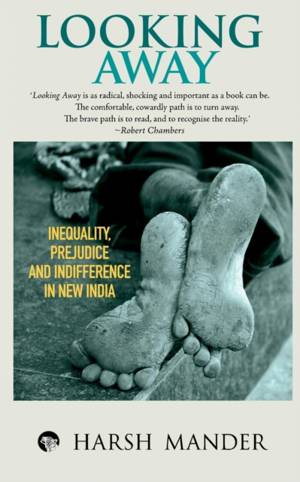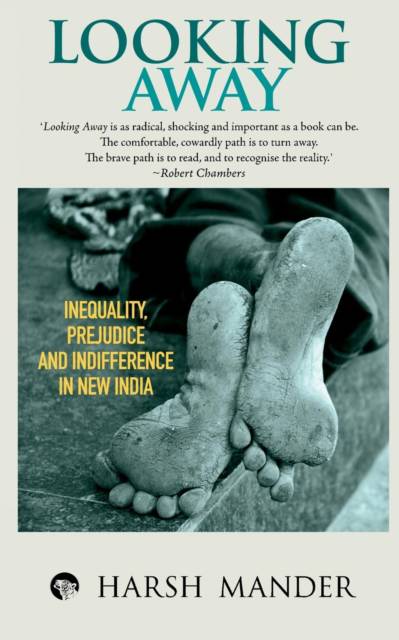
- Afhalen na 1 uur in een winkel met voorraad
- Gratis thuislevering in België vanaf € 30
- Ruim aanbod met 7 miljoen producten
- Afhalen na 1 uur in een winkel met voorraad
- Gratis thuislevering in België vanaf € 30
- Ruim aanbod met 7 miljoen producten
Zoeken
€ 30,45
+ 60 punten
Omschrijving
This feeble blemished light, this dawn mangled by night, This is not the morning we had all so longed for... -Faiz Ahmed Faiz In the two decades since the early 1990s, when India confirmed its allegiance to the Free Market, more of its citizens have become marginalized than ever before, and society has become more sharply riven than ever. In Looking Away, Harsh Mander ranges wide to record and analyse the many different fault lines which crisscross Indian society today. There is increasing prosperity among the middle classes, but also a corresponding intolerance for the less fortunate. Poverty and homelessness are also on the rise-both in urban and rural settings- but not only has the state abandoned its responsibility to provide for those afflicted, the middle class, too, now avoids even the basic impulses of sharing. And with the sharp Rightward turn in politics, minority communities are under serious threat-their very status as citizens in question-as a belligerent, monolithic idea of the nation takes the place of an inclusive, tolerant one. However, as Harsh Mander points out, what most stains society today is the erosion in the imperative for sympathy, both at the state and individual levels, a crumbling that is principally at the base of the vast inequities which afflict India. Exhaustive in its scope, impassioned in its arguments, and rigorous in its scholarship, Looking Away is a sobering checklist of all the things we must collectively get right if India is to become the country that was promised, in equal measure, to all its citizens.
Specificaties
Betrokkenen
- Auteur(s):
- Uitgeverij:
Inhoud
- Aantal bladzijden:
- 464
- Taal:
- Engels
Eigenschappen
- Productcode (EAN):
- 9789385288456
- Verschijningsdatum:
- 15/04/2015
- Uitvoering:
- Paperback
- Formaat:
- Trade paperback (VS)
- Afmetingen:
- 127 mm x 203 mm
- Gewicht:
- 453 g

Alleen bij Standaard Boekhandel
+ 60 punten op je klantenkaart van Standaard Boekhandel
Beoordelingen
We publiceren alleen reviews die voldoen aan de voorwaarden voor reviews. Bekijk onze voorwaarden voor reviews.








